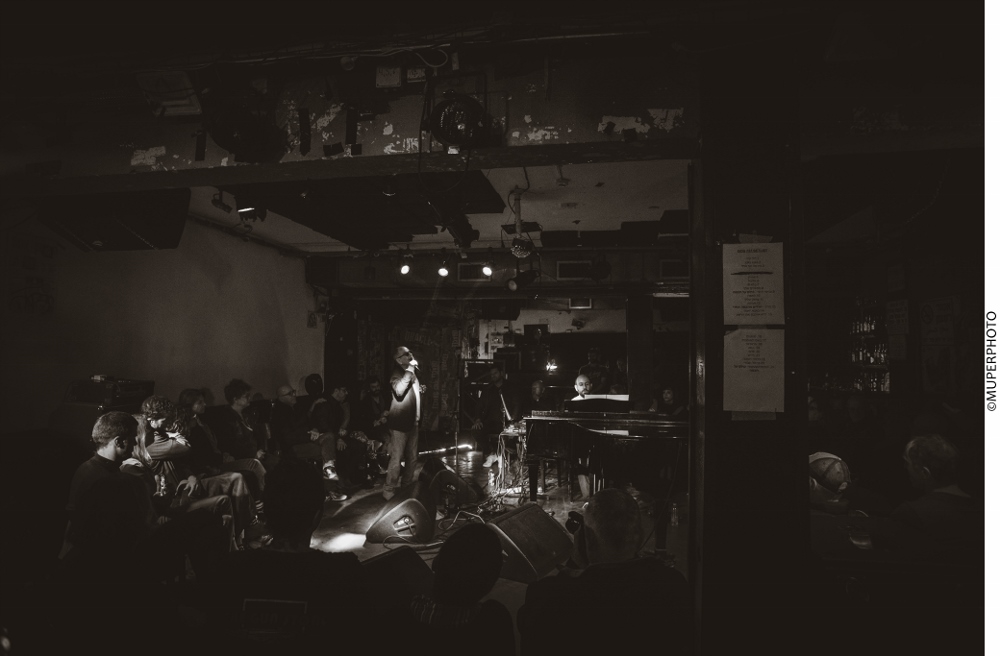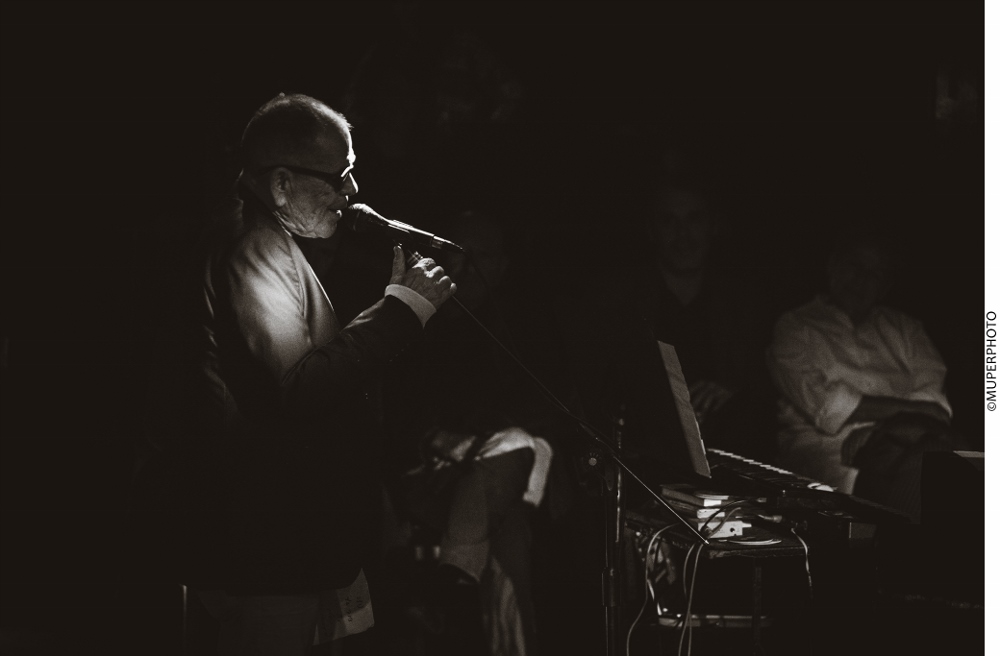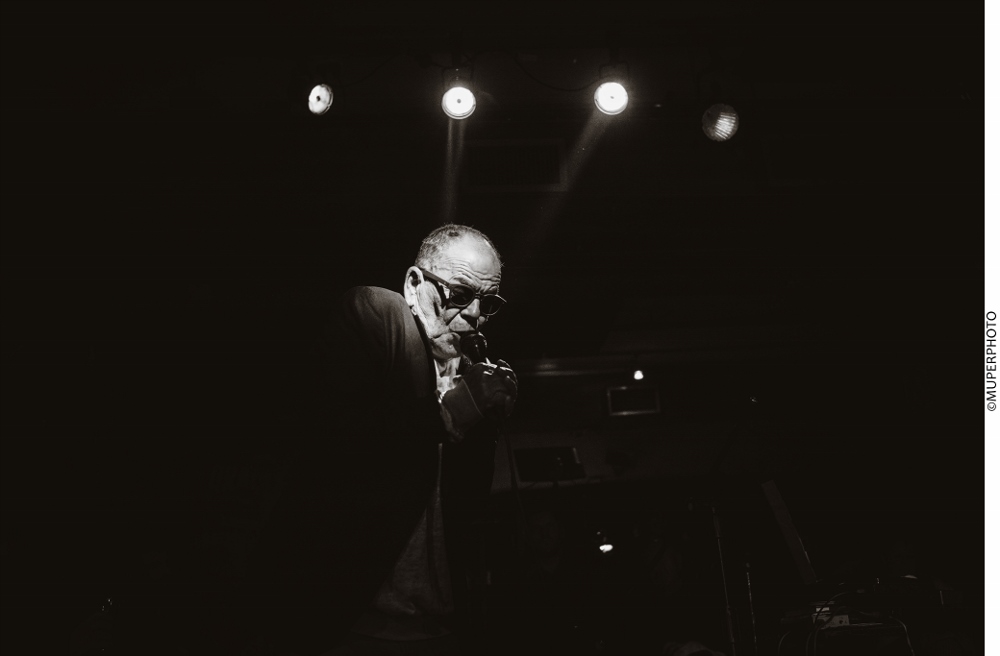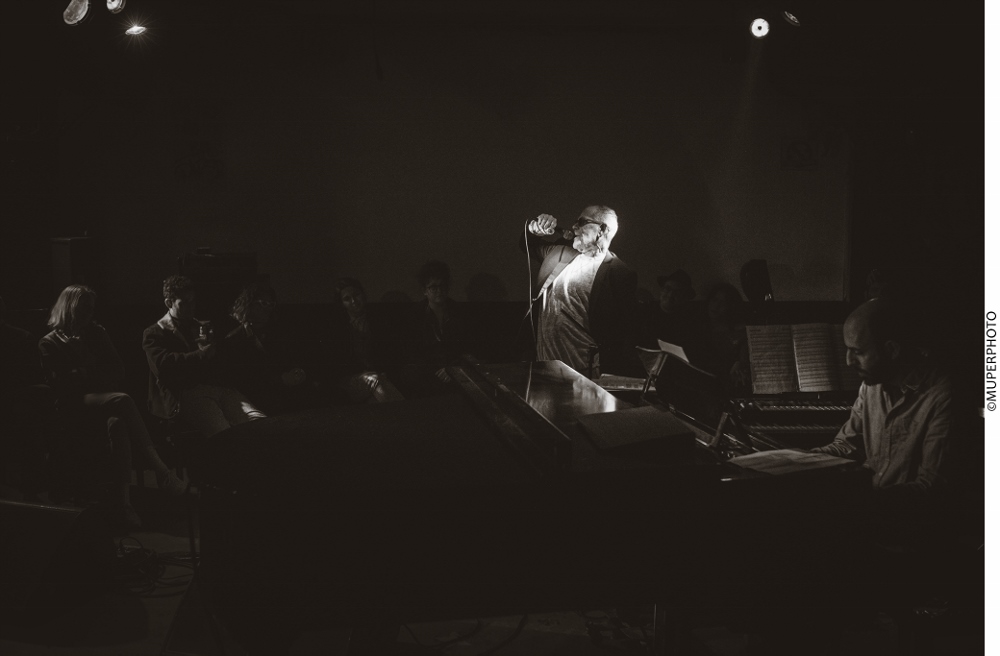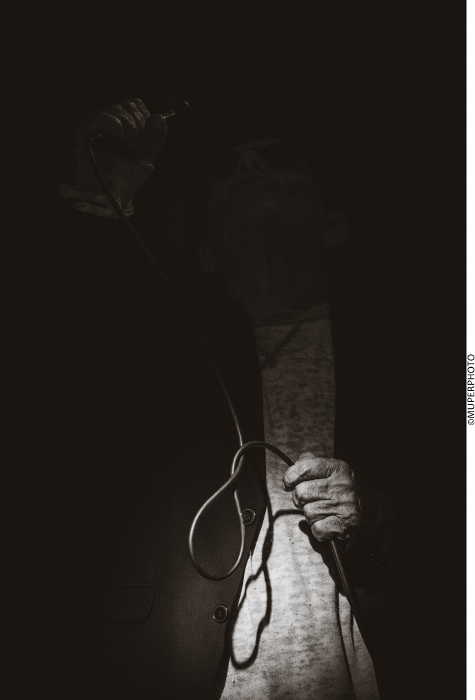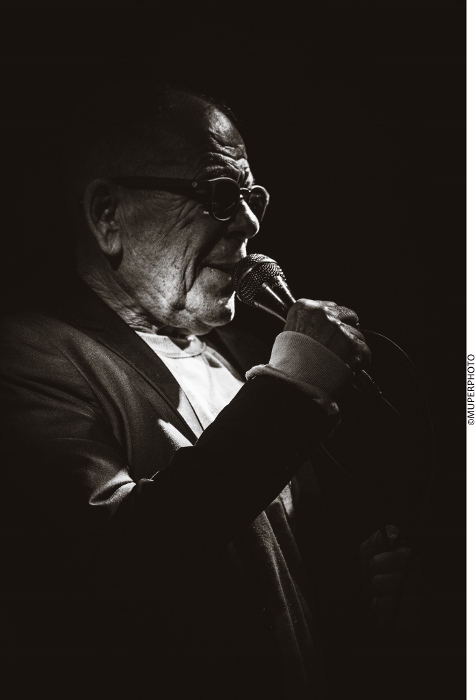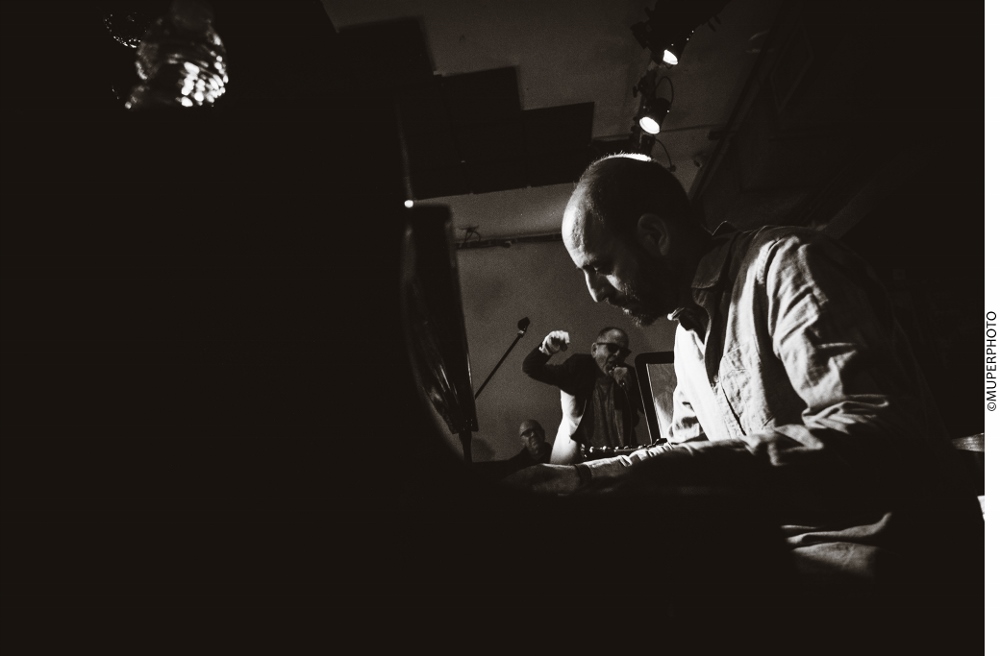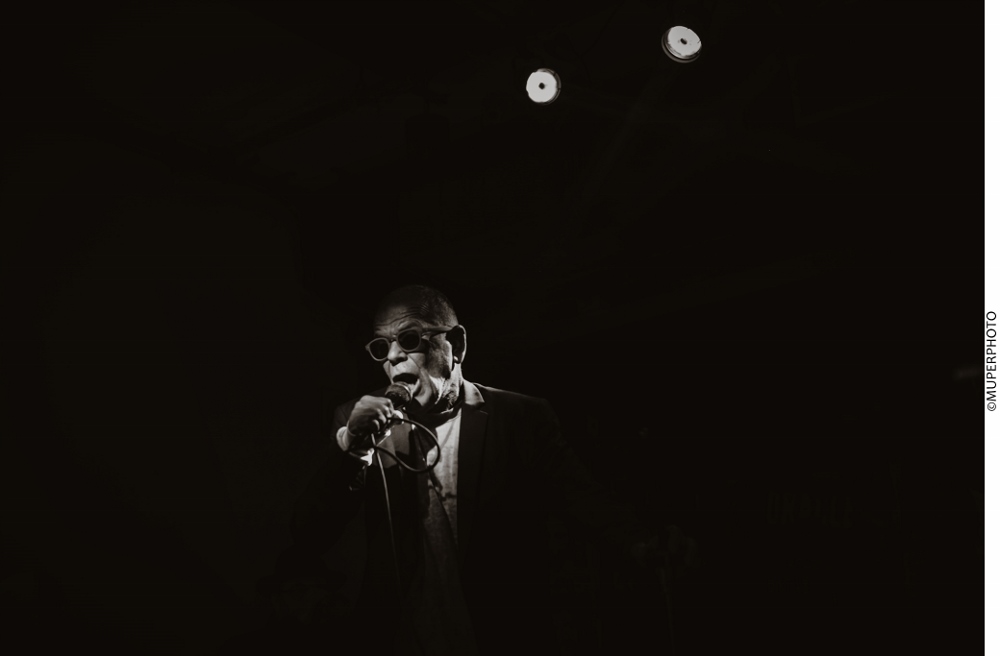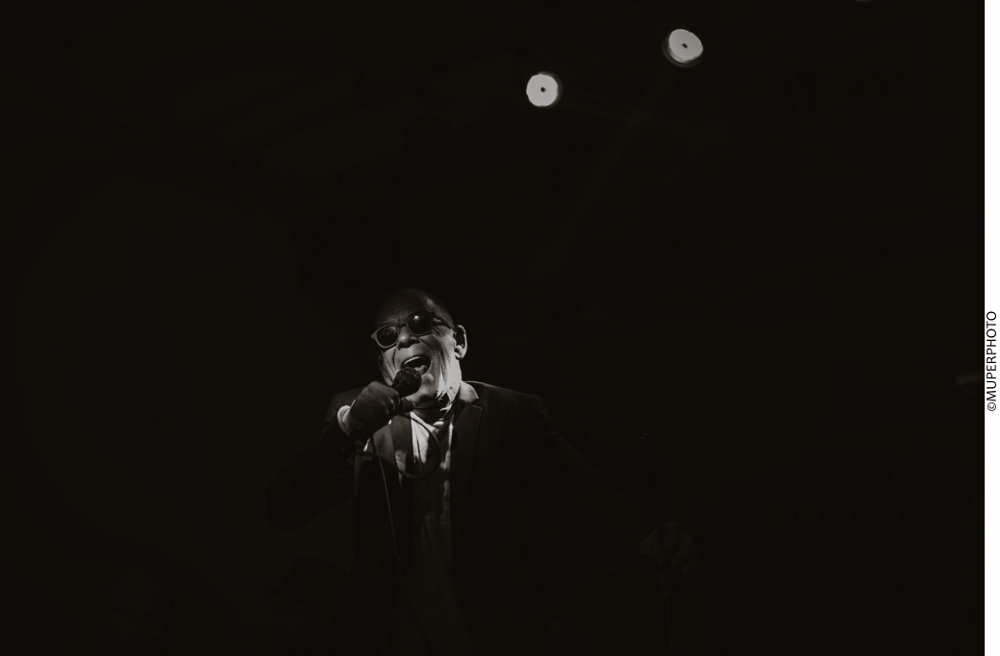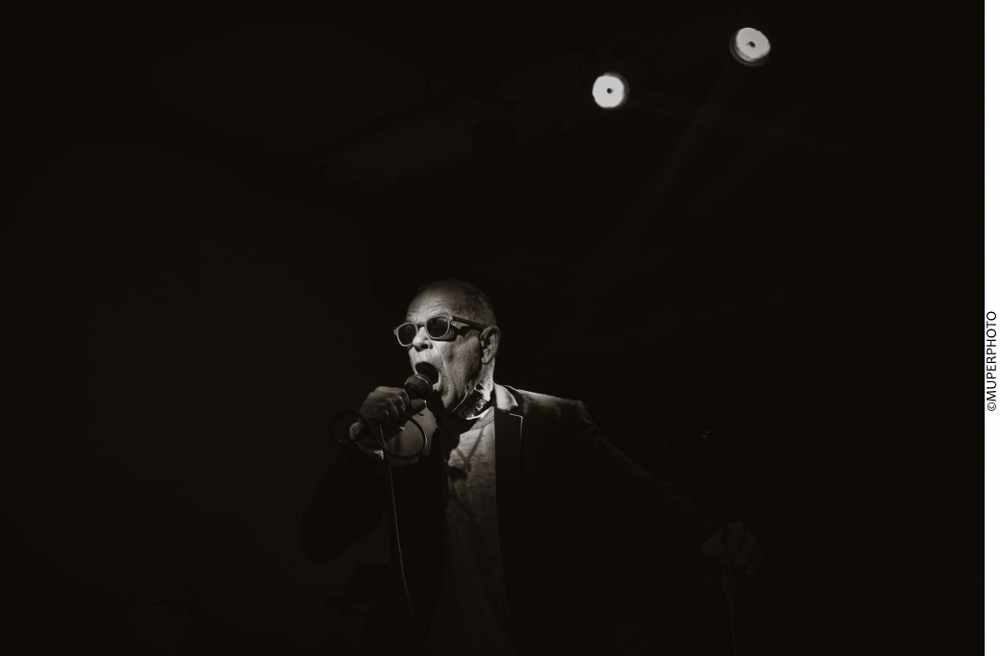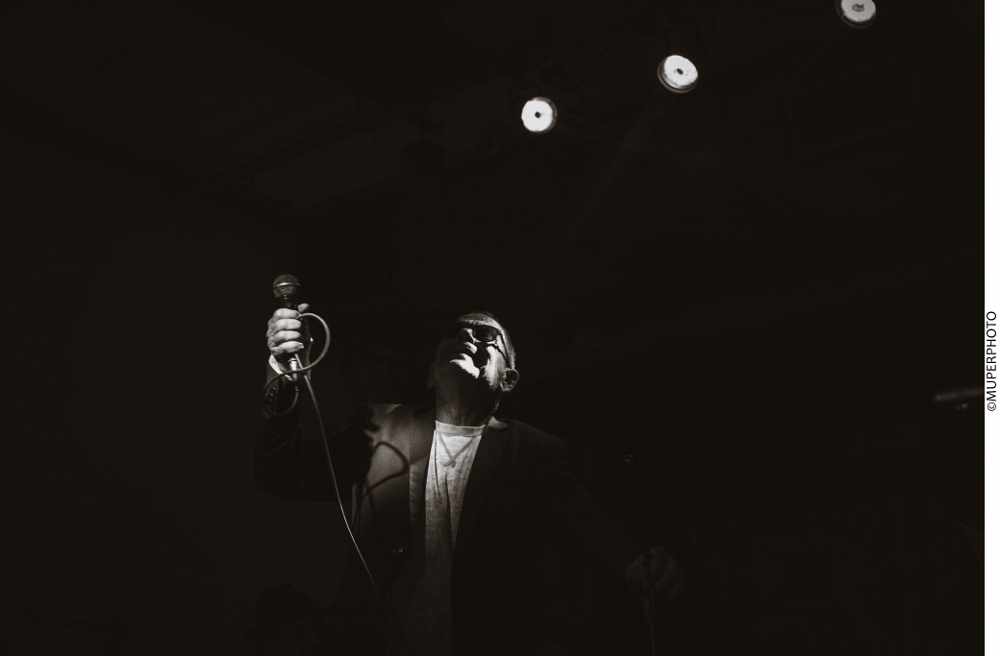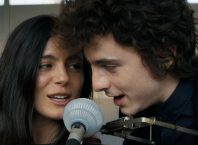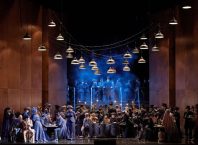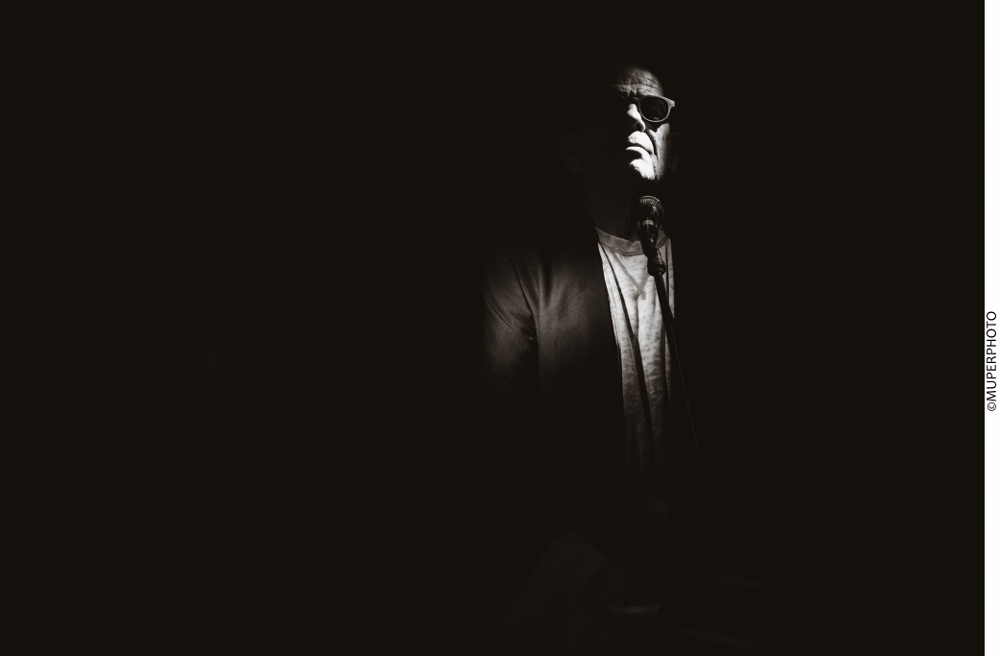
If anyone can surprise an audience after several decades as a performing artist – then it’s Zeev Tene. The singer-songwriter is known for his protest songs and a larger-than-life stage persona infused with humor. And yet, perhaps, last night’s performance at the Levontin 7 360° Piano Festival was not so surprising, because when Zeev Tene does something, he is all in, all the way. Here he had a wonderful partner in Udi Bonen (Haya Miller – bass player), and so it was last night – intense, funny, poignant, beautiful and utterly captivating.
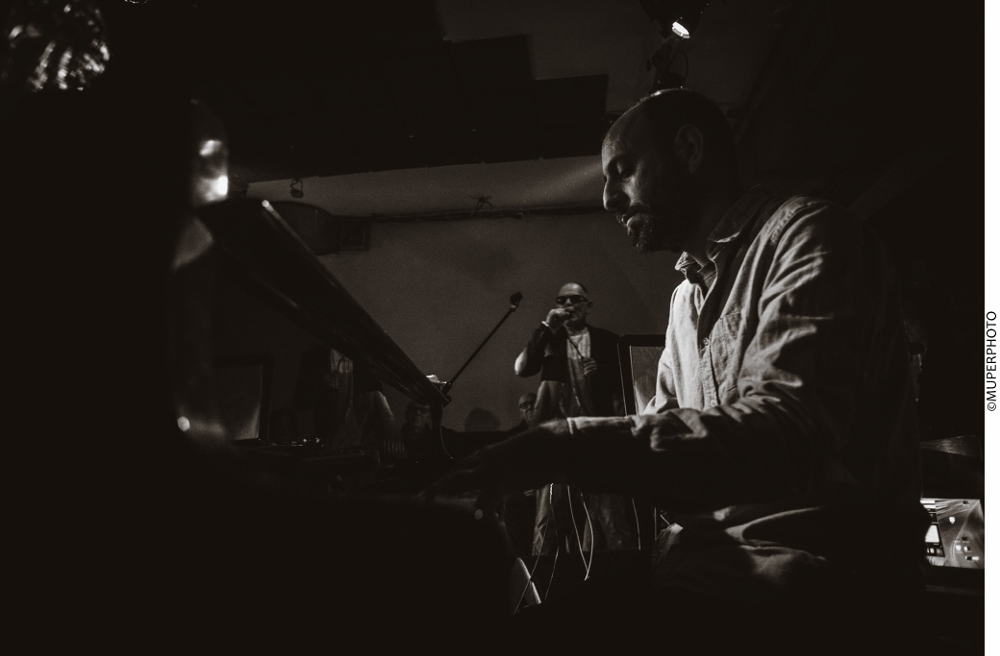
Udi Bonen presided over the piano, with grace, playing a set list that ranged from the 17th century (Jean-Philippe Rameau) to the 20th (György Ligeti) and onwards to the 21st century composer – Zeev Tene. The evening opened with a prelude by Shostakovich on the piano. Sauntering out in style and dark shades, Zeev Tene took the mic, and performed Notza (feather), a song from his album Harov Hay (2005) to the sounds of Shostakovich in his deep, full, rough voice. The words of the song – “I was born in a moment of grace/a drop of something whole in a sea of emptiness …but I am like you, an open wound that can never heal/a feather in the wind” (my very rough translation) – together with the music created something new, something striking and moving.
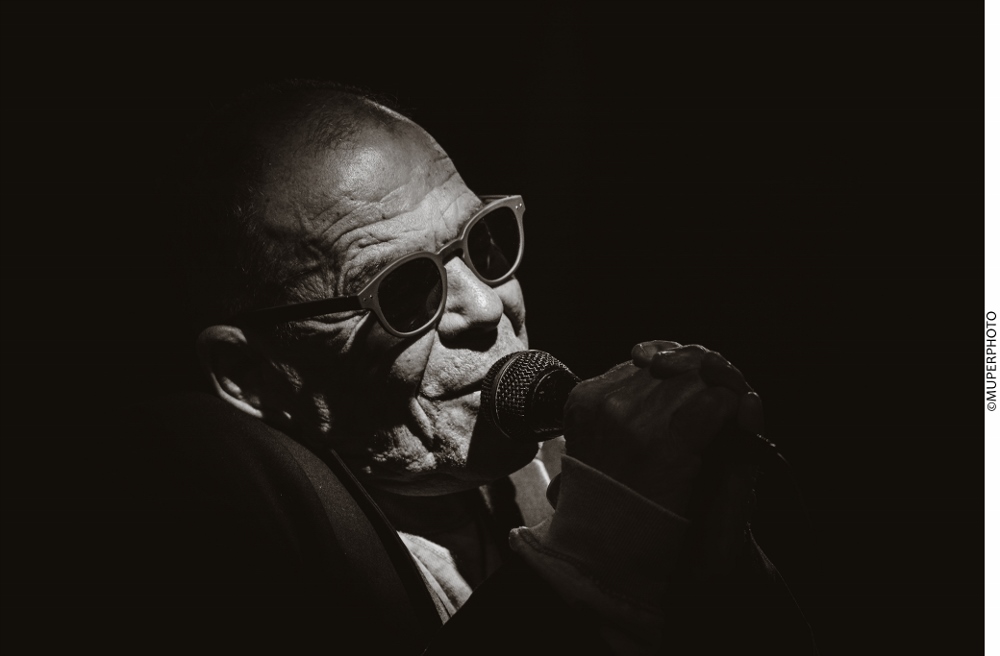
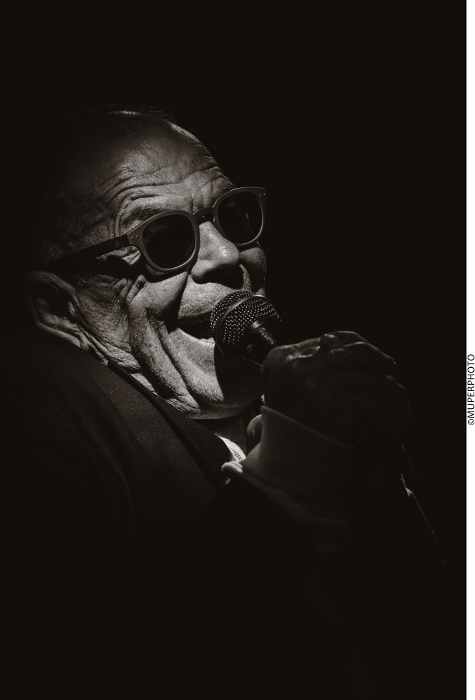
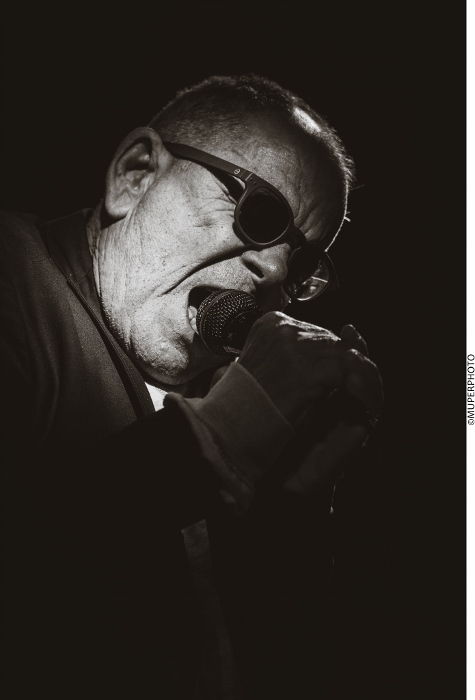
The song Nigmeru Hadodim, a family story, a litany of love and death, in which pain and wry humor intertwine, from Tene’s 2001 album, was paired with Jean-Philippe Rameau’s Sarabande. Tene and Bonen ventured beyond the expected connection of words and music to create an exciting duet, in which every sound, breath, and movement contributed to the experience. Tene performs with his entire body, with a quirky, almost perverse elegance, using voice and movement with theatrical flair.
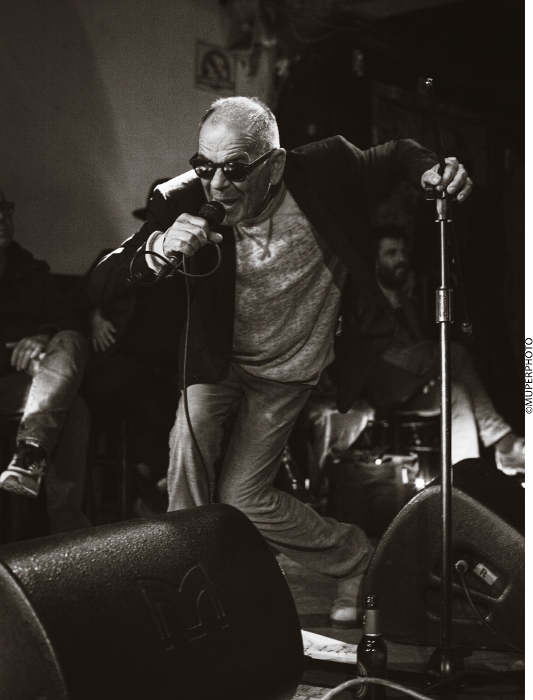
A song revealing secrets was paired with Ligeti, the volume rising from a gravelly whisper, accompanied at times by an impish smile, to a roar; a somber meditation was intoned to Morton Feldman. Sara and David from Tene’s first album (1987) was followed by Mizrah Tichon Hadash (New Middle East) from his latest album, titled (more or less) with his signature humor – I Won’t Die Young (2017). There is a wild, macabre tone to many of the songs that shakes me to the core and makes me smile. One of my favorites was a new song that has not yet been released – Mekulkal (which I might translate as Broken or Ruined), in which rebel poet Zeev Tene reveals the edgy side of old age. Then again, there was also the exquisite pairing of Kufsa Shehora (Black Box) with Ligeti, and the exuberant audience dancing in their seats to their requested encore – Hakol Hithil BeNatanya (It all began in Netanya)… A truly unique experience that I hope will be repeated in some version in the future. Muperphoto was there, capturing images with the intensity of the performance – enjoy!
